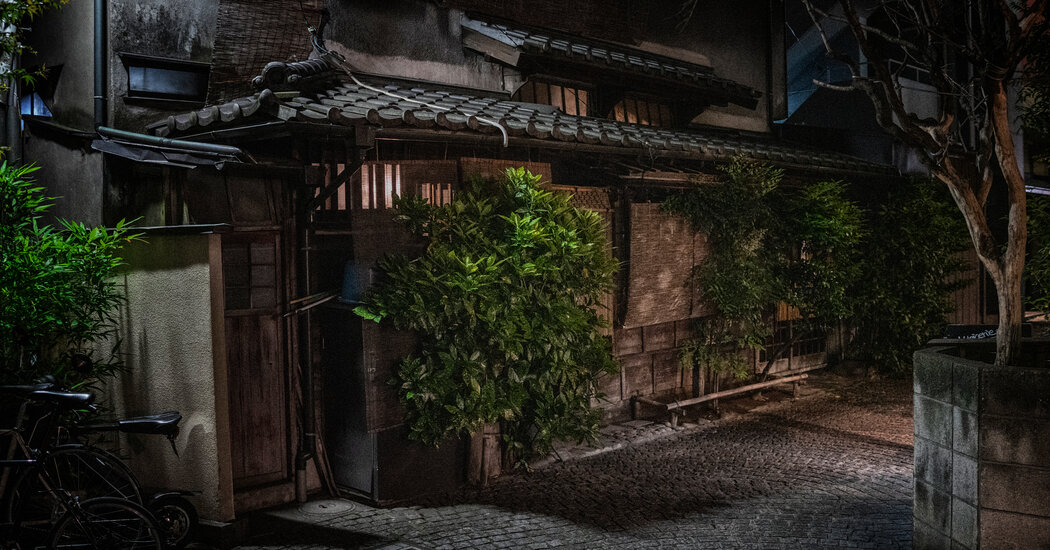
Continuing my quest, I visited Fukube, another “Q Guide” favorite, located in a bustling neighborhood a couple blocks east of Tokyo Station. The main room, with just a handful of seats in front of a narrow bar counter, was full of suited salarymen. I squeezed into the last stool and ordered sake tapped from a barrel before me and a serving of grilled mackerel with grated daikon. There were a few changes since my last visit: The lighting was brighter. The master’s son was now manning the bar. But the same bottles decorated the same shelves.
Then, as I turned and scanned the walls, it hit me: They’d removed the tobacco stains, fingerprints, charcoal residue and marks of humanity that decorated this 83-year-old establishment and rebuilt the interior. That old patina had been the kind you couldn’t fake: grooves, scratches and streaks signifying decades of loving use. Before, I had savored the feeling each time I entered that Fukube was just as it had been since 1938. Now it felt unmoored from history.
The usual images of Tokyo oscillate between two extremes: gilded metropolis of the future and repository of the aristocratic past. The “Q Guide” evokes a different, real, thoroughly proletarian and much more intriguing city, most faithfully depicted in works of art and literature that I love.
I thought of Donald Richie’s “Tokyo: A View of the City,” a short book published in 1999 that illuminates Tokyo’s downtown culture, when I waited in line outside Dote no Iseya, a basic but brilliant tempura restaurant in what was once a lively red-light district. Yoshihiro Tatsumi’s magnificent graphic novel, “Abandon the Old in Tokyo,” a collection of stories from 1970, focused on the city’s postwar, working-class culture, came to life when I ducked into Uosan Sakaba, an izakaya located on the far eastern side of Tokyo. I trailed two salarymen, obviously a little tipsy, into the steamy space. The counterman said to them, with no greeting or preamble, “Have you been drinking?”
“We had a few,” the men replied.
“Get out,” the counterman said, authoritatively, and that was it. Uosan may be cheap and loud, but they too have their rules. You can get drunk there, but you don’t enter if you’re already inebriated.





